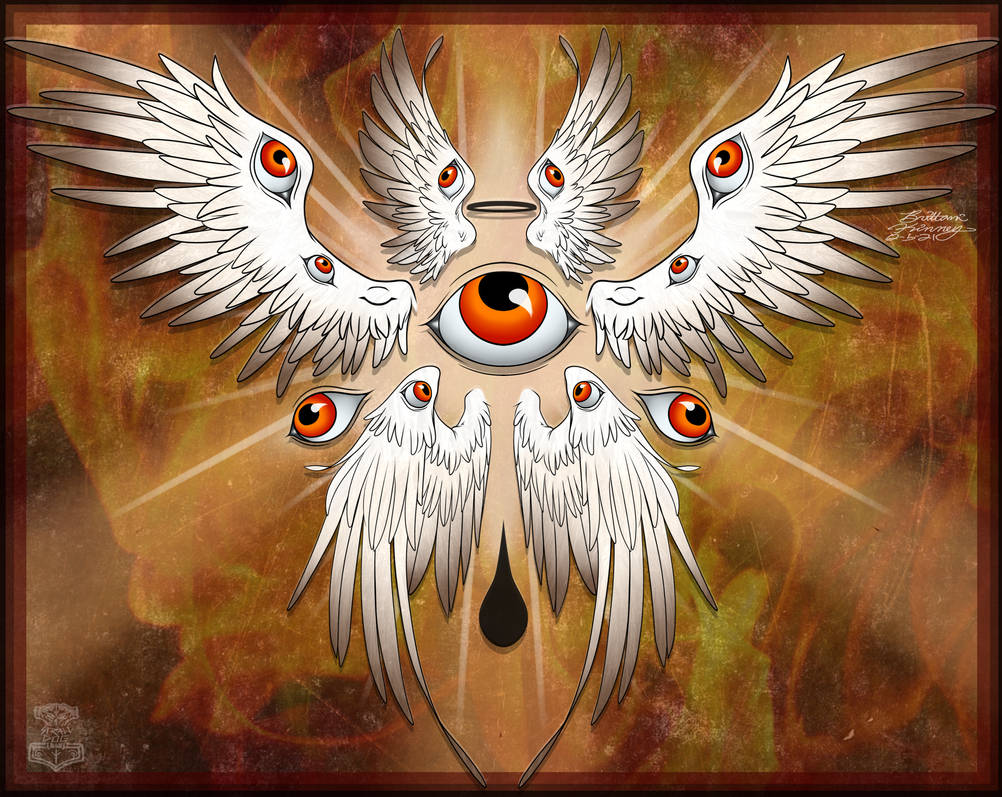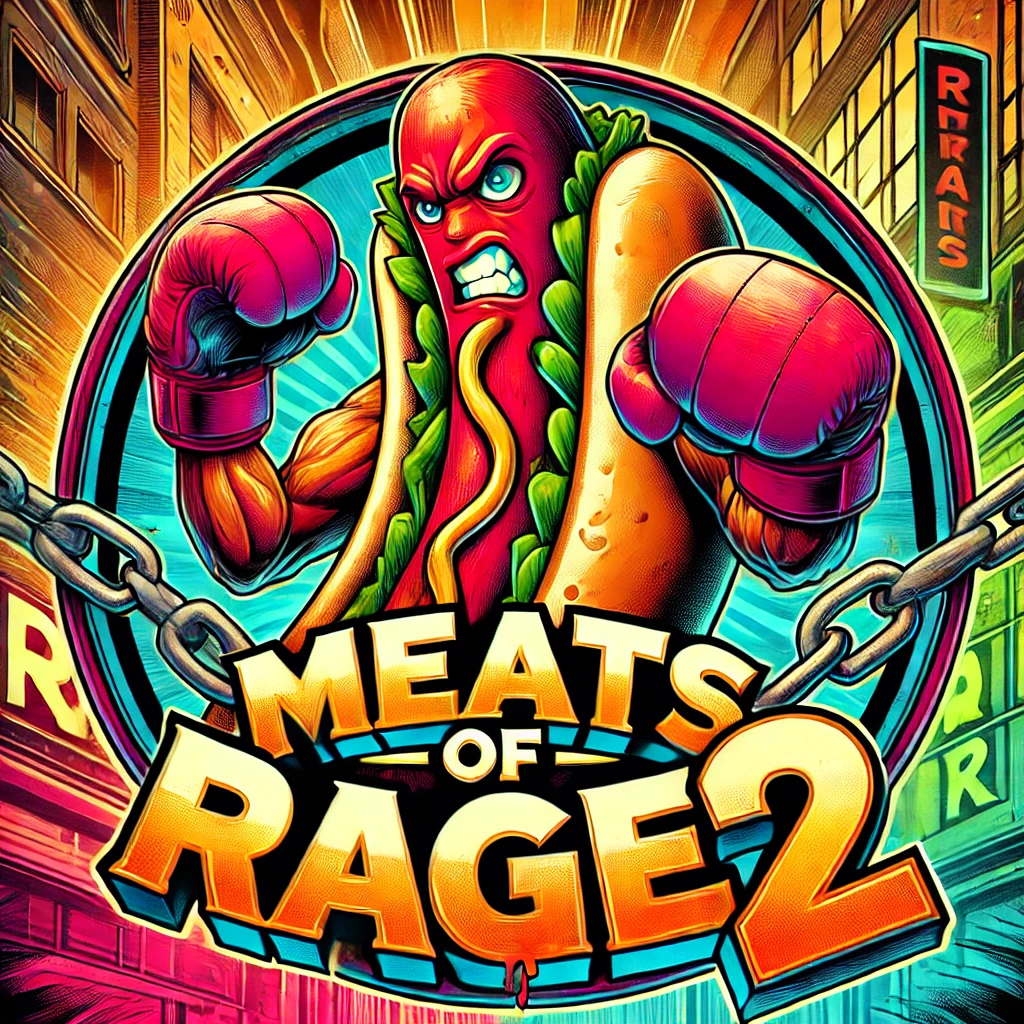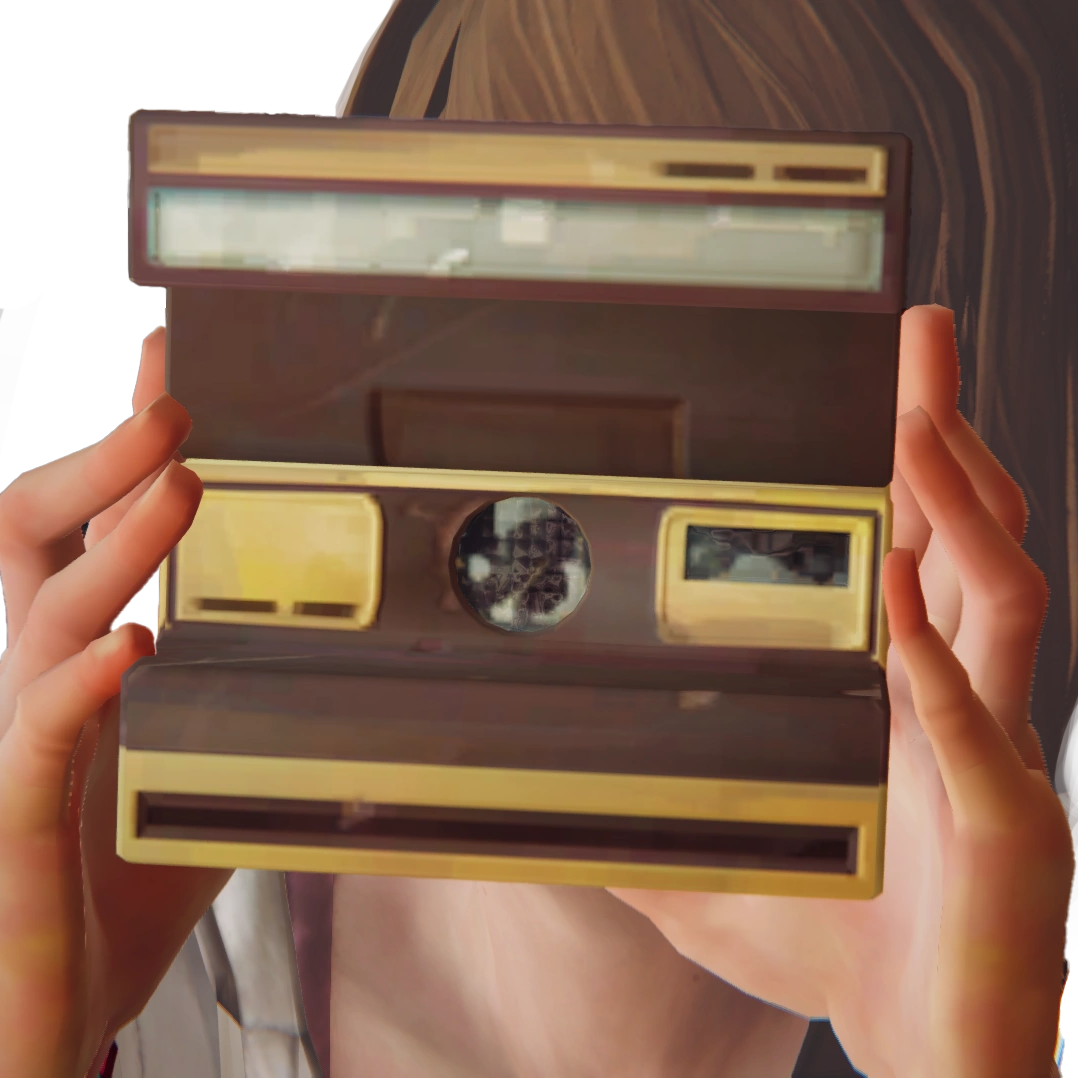Halflife 3 is going to be amazing you guys
Valve can’t count to 3 though.
Expect after the Steam Deck 2 for its successors to be Steam Deck 2: Episode 1 and Steam Deck 2: Episode 2.
Steam Deck: Alyx
Just stay away from the knockoff Steam Deck: Kill the Freeman.
That was the Steam Deck 64GB: Kill the free space (with shader caches)
My Deck64 was turned into a 1tb before you could even buy them like that though. For anyone who had extra 2230s lying around and was going to use a screen protector anyways it was a no brainer.
I modified mine too but I tried to go the 512GB SD card route first and just install everything on that. Yeah still filled the internal storage. 1TB SSD is worth it. Now i just use the SD card for emudeck+roms.
Valve can’t count to 3 though.
Capcom had years of jokes on exactly that point with the Street Fighter series, but they eventually did release Street Fighter III.
EDIT: For those not familiar, here’s the relevant portion of the series timeline:
-
Street Fighter
-
Street Fighter II: The World Warrior
-
Street Fighter II: Championship Edition
-
Street Fighter II: Hyper Fighting
-
Super Street Fighter II: The New Challengers
-
Super Street Fighter II Turbo
-
Street Fighter Alpha
-
Street Fighter: The Movie (the video game)
-
Street Fighter Alpha 2
-
X-Men vs. Street Fighter
-
Street Fighter EX
-
Street Fighter III: New Generation
To be fair to Capcom, they did release Ace Attorney 3 quickly and it was the peak of the franchise.
-
It would be free marketing if they went with that approach. I can already see the headlines: “Why the ‘Steam Deck 3’ is called the ‘Steam Deck: Episode 1’ and other 5 things with origins on the memeverse”
Yep. I consider HL:Alex to be HL:3. It’s that good.
But I still want another HL game.
I’d settle for an Alyx 2 at this point.
No more Alyx after that though!
Hollow Knight: Silksong is gonna be perfect.
(Actually, knowing those devs, it might.)
I can’t wait for my great grandson to play it
Here you dropped this: "great "
Confirmed!
Interesting spin on the “A delayed game is eventually good, but a rushed game is forever bad”-quote.
These quotes are from a time when games were stamped into hard plastic and circuitry. No Man’s Sky and Cyberpunk are two examples of games with rocky launches that are both amazing now. Saying a game is forever bad simply isn’t true anymore provided the makers stand behind the product.
But they don’t most of the time. If you aren’t very lucky like with No Man’s Syk or Cyberpunk, you are stuck with an abandonend pile of garbage. And even with those games, it would have been better for everyone involved if they were what they are now from the start.
Hey anyone wanna play fallout 76?
You mean the family friendly version of rust
While we’re at it, mad props to facepunch. Rust was always a great game. Even through the weird bits with xp and blueprint scraps and aimcone, it always felt like a complete game.
Granted, I’m not touching it again unless a new plague shuts everything down for a month or I quit my job, but if you have 18 hours to waste every day it’s the best game ever.
Sad as that sounds, I’m sure there are some poor souls who are up for it.
From everything I’ve heard, 76 is a lot better now, I am planning on playing it with a friend… Sometime… Ha
It’s a lot better, but it’s not Fallout 5, which is what I think a lot of people – including myself – actually wanted.
If you wanted to play a game in the Fallout universe with some of your friends or your spouse or something, then, yeah, I can see Fallout 76 being a legitimate fit.
But Bethesda built up a fan base around a franchise that liked playing an immersive, story-oriented, highly-moddable game where the main character is kind of core to the story. They moved to a genre where xxPussySlayer69xx is jetpacking around, the story couldn’t matter much past the initial part of the game (since the point of the online portion is to have people replaying relatively-cheap-to-produce content), that couldn’t be modded much (to keep balance and players from cheating), and where the player’s character cannot matter much, because there are many player characters.
They did make some things that I’d call improvements, like shifting away from PvP (the Fallout 76 playerbase has not shown a lot of enthusiasm for it) and reducing the emphasis on survival mechanics (it turns out that focusing a lot on gathering food and water can kind of detract from playing the rest of the game if you have limited time to play with other people).
But Fallout 76 just fundamentally cannot be Fallout 5, because it’s aimed at online play, replaying the same events over and over. It can be a lot better at being an online-oriented Fallout-themed game than Fallout 76 was at release, and they did that.
People complaining about, say, the lack of human NPCs in the initial release are complaining that they want that kind of single-player-oriented game. Bethesda put some in, true enough, shifted things a little towards earlier games in the series. But they have not and were not going to convert the game into Fallout 5.
There have been franchises that have spanned multiple video game genres. Think of, say, Star Wars. But I’m not sure how often there are long-running video game franchises that shift to other genres successfully. If Capcom decided to make a 4X Mega Man game, or a dating sim Mega Man game, I’m not sure that things would go well.
Granted, Fallout 76 is closer to earlier 3D Fallout games than a hypothetical Mega Man dating sim would be. But I think that there are some important, not immediately-obvious divergences from what made the series popular.
Bethesda built up a fan base around a franchise that liked playing an immersive, story-oriented, highly-moddable game where the main character is kind of core to the story. They moved to a genre where xxPussySlayer69xx is jetpacking around, the story couldn’t matter much past the initial part of the game (since the point of the online portion is to have people replaying relatively-cheap-to-produce content), that couldn’t be modded much (to keep balance and players from cheating), and where the player’s character cannot matter much, because there are many player characters.
For real. I know every Fallout fan says this, but I don’t even need a new Fallout game-a remaster of new Vegas or even FO3 would be awesome. I know that’s not easy but it’s less work than designing a whole new game. Sometimes devs could save themselves a lot of trouble and aggravation if they listened to the fanbase instead of trying to tell us what we want
Supposedly. But I was never a fan of the Bethesda Fall Outs, so I’d just never play FO76 in the first place.
But the damage is lasting. NMS will always be known for the absolute shitshow it was on launch. Props to them for eventually delivering, but the game will never be as iconic as it could have been. Like compare bg3’s reception of “holy shit it’s so good” vs NMS’s “oh it’s finally good now.”
Indeed. I always read in forums people asking if NMS is worth playing now. Imagine if it had a great launch from the beginning. It would’ve been much more successful and wouldn’t have a bad reputation like it does know.
NMS is better since release but saying it’s amazing now is a bit of an embellishment. At its core it’s the same game with all the fundamental issues it always had, there’s just more fluff added on.
I mean, IMO it’s good enough to get your moneys worth out of it, its a hell of a lot of fun actually. It’s just that the main storyline is relatively short and the gameplay loop after completing the main story is not engaging enough to make it one of those games that you end up sinking 500+ hours into. To me that puts it in the same tier as Subnautica.
Out of all my VR games almost none make it into double digits playtime (notable exceptions, Beat Saber and Boneworks) but I have logged hundreds of hours in NMS VR. No other VR experience comes close in terms of content.
Same goes for Cyberpunk 2077 tbh.
On the other hand, making me a beta tester for games I paid AAA prices for leaves me with a very negative feeling. You only get one chance to make a good first impression.
Also, while some genres can be fixed after release, some can’t because they aren’t very replayable.
A number of adventure games, for example – you’re probably not going to play through them many times. If you blow the initial release, you kind of blew the experience.
No those two games are the exception no the rule.
Tell that to Game Freak.
The question bring why you’d keep working on something you got money for. Especially when you’ve been shown time and time again that people keep buying your games anyway. Seems more cost effective to pay those marketing people than your code monkeys…
Lol that quote is literally in the first sentence of the article.
Not sure why we’re arguing this quote with the same two games over and over. Nms and cyberpunk are great games, but they’re a rarity.
Game Dev crunch is a plague in th industry, we suffer as consumers who cop bad releases on release. The whole industry could learn from its roots and delay things for a better initial product.
Defending the current practice of redevelopment in post is almost consumer gaslighting.
Plus, the base game itself should be good. It shouldn’t need updates. Post-game launch updates should be enhancements, not fixes.
I think a big difference with both is that they’re not big multiplayer titles that are looking to make money with cosmetics.
If a multiplayer focused game is shit at launch, it won’t get a good user base and then it’s as good as dead.
Both Destiny and Destiny 2 had really poor launches. Then they cleaned up their act and we’re very successful and had thriving playerbases. Light fall and this past year notwithstanding…
deleted by creator
Destiny 2’s been a real roller coaster. Forsaken was the best it ever was, so you haven’t missed much imo.
I’m not defending the need for post-launch patches to fix glaring issues and I’m not defending crunch, but suggesting that buggy releases and crunch haven’t been with gaming since the earliest days of the industry seems like putting on rose colored glasses. There is a lot to damn about the current industry, but painting the root days of the industry as free of those same issues just to make the comparison seems unrealistic.

deleted by creator
HL3 gang remembers
I don’t disagree that often an early release can really kill a game. I think that Fallout 76 would have done much better had it not gone out the door for a while, and I think that the poor quality at release really hurt reception; despite Bethesda putting a lot of post-release work into the game, a lot of people aren’t going to go back and look at it. CDPR and Cyberpunk 2077 might have done better by spending more time or deciding to cut the scope earlier in development too. But, a few points:
-
First, game dev is not free. The QA folks, the programmers, all that – they are getting paid. Someone has to come up with money to pay for that. When someone says “it needs more time”, they’re also saying “someone needs to put more money in”.
-
Second, time is money. If I invest $1 and expect to get $2 back, when I get that $2 matters a lot. If it’s in a year, that’s a really good deal. If it’s in 20 years (adjusting for inflation), that’s a really bad deal – you have a ton of lower-risk things than you could do in that time. Now, we generally aren’t waiting 20 years, but it’s true that each additional month until there is revenue does cut into the return. That’s partly why game publishers like preorders – it’s not just because it transfers risk of the game sucking from them to the customers, but also because money sooner is worth more.
-
Third, I think that there are also legitimate times when a game’s development is mismanaged, and even if it makes the publisher the bad guy, sometimes they have to be in a position of saying “this is where we draw the line”. Some games have dev processes that just go badly. Take, say, Star Citizen. I realize that there are still some people who are still convinced that Star Citizen is gonna meet all their dreams, but for the sake of discussion, let’s assume that it isn’t, that development on the game has been significantly mismanaged. There is no publisher in charge of the cash flow, no one party to say “This has blown way past many deadlines. You need to focus on cutting what needs to be cut and getting something out the door. No more pushing back deadlines and taking more cash; if the game does well, you can do DLC or a sequel.”
EDIT: I think that in the case of Cities: Skylines 2, sure, you can probably improve things with dev time. But I also think that the developer probably could have legitimately looked at where things were and said “okay, we gotta start cutting/making tradeoffs” earlier in the process. Like, maybe it doesn’t look as pretty to ship with reduced graphical defaults, but maybe that’s just what should have been done. Speaking for myself, I don’t care that much about ground-level views or simulated individuals in a city-builder game, and that’s a lot of where they ran into problems – they’re spending a lot of resources and taking on a lot of risk for something that I just don’t think is all that core to a city-builder game. I think that a lot of the development effort and problems could have been avoided had the developer decided earlier-on that they didn’t need to have the flashiest city sim ever.
Sometimes a portion of the game just isn’t done and you might be better-off without it. Bungie has had developers comment that maybe they shouldn’t have shipped with The Library level in Halo. My understanding is that some of the reason that it looks similar is that originally, the level was intended to be more open, and they couldn’t make it perform acceptably that way and had to close off areas from each other. I didn’t dislike as much as some other people, but maybe it would have been better not to ship it, or to significantly reduce the scope of the level.
I mean, given an infinite amount of dev time and resources, and competent project management, you can fix just about everything. Some dev timelines are unrealistic, and sometimes a game can be greatly-improved with a relatively-small amount of time. My point is that sometimes the answer is that you gotta cut, gotta start cutting earlier, and then rely on a solid release and putting whatever else you wanted to do into DLC or maybe a sequel.
I won’t lie: That’s the kind of talk that really makes me wish Valve would quit playing around with Steam and weird hardware experiments, and go back to making new games.
I don’t agree at all. There’s one Valve and Steam. If it’s not Valve, it’s gonna be Microsoft or someone, and I’d much rather have Valve handling the PC game storefront than Microsoft. There are lots of game developers and publishers out there that could develop a game competently, but not many in Valve’s position.
-
suck is forever
I should call her
This is true, but gamers are so impatient. I am in early access with my Virtual Reality Theme Park and have been busting it for 3 years as a solo dev, and of course it is not a full Theme Park yet. What does exist has put me into the top 10 on the Meta Quest App Lab store, but I get bounced out of the top 10 now and then as I will get 3* saying new rides are not coming fast enough. People are so impatient just like shareholders.
Make sure you put in the description you are a small one dev team. Most people are reasonable and understand you can only do so much.
People are way less patient with asshole AAA studios that crank out garbage because they waste time implementing micro transactions or bullshit DLCd
Obviously CS2 has sucked for a while and is gonna suck forever…
deleted by creator
Got the feeling the original CS2 was actually cities skyline 2 since it’s the “hot topic” now.
Game of Thrones agrees with him.
Time was not the issue with HBO Got. The show runners ran out into the ground so they could move on and be done with it.
Time was the issue. They ran out of time waiting for GRM, so they went their own way. If they had waited… We’d still be waiting, but wouldn’t have gotten the suck.
You mean if they’d been competent show runners in the first place.
The show was great when it was based off of good writing.
Then it got sketchy as they had to rely on GRRM’s notes.
Then the notes got more vague, and season 7 and 8 turned into garbage.
Conclusion: D&D were mediocre show runners who couldn’t hire competent writers, and thought game of thrones was about subverting expectations instead of strong character arcs.
Justifiably, it lost them their next gig.
HBO was willing to wait for good seasons. But D&D wanted to get into a Star Wars contract with Disney. They rushed season 8 out the door with lazy writing to get that Star Wars deal.
After season 8 traumatized GOT fans and bombed in reviews, Disney backed out of the deal, and D&D have fallen into obscurity.
There’s only so much delaying can help a badly designed game, delaying only really helps those games that need that extra polish and likely won’t be receiving it afterwards.
Duke Nukem Forever took 11 years to develop and is considered the greatest narrative since Jesus rose from the dead
Really? I heard it was a disappointment.
Woosh
Fantastic advice, as a guideline in a vacuum.
No game should be shipped broken, but sometimes concessions are a reality.
Even Half-Life had to make concessions. Xen is infamously less polished and fine tuned than the rest of the game. Valve didn’t have infinite resources and time to keep tinkering. Would the game have been better? Maybe. But time is money, and Half-Life already ended up selling huge. Would taking time to fine tune Xen have boosted sales? Were people in the 90s avoiding the game because of Xen? I don’t think so.
The profits from Half Life allowed Valve to make more games and be successful. Is it worth trading off a more fine tuned Xen in order to have Valve exist as we know it today?
In the documentary, they actually expand on that, they delayed the core game until the story and levels worked out and specially left Xen to the last as if they were not having fun before, they would have given up
I know. Perhaps I was not being clear in my point.
Xen was made last, and Valve never could quite get it to the same quality as the rest of the game.
If we follow the logic, which many commenters have, that “games should only be released 100% finished” then Half-Life should have been delayed indefinitely until Xen was as polished as the rest of the game.
I was making the point that Xen is an example of Valve deciding part of their game is “good enough” and shipping it, rather than continually extending development.
There are realities of game development that even Valve isn’t immune to.
I dont think any creative would disagree shareholders and useless management however
Yeah, but there’s only so much delays can fix. Sometimes suck is sticky.
Duke Nukem Forever PTSD
Perhaps. I suppose saying: “Delaying a game which is making coherent progress is better than forcing devs to cut their work short.” is a much less catchy quote.
Duke Nukem Forever suffered both from not giving the appropriate development time to a single workflow, and from the related problem of upper manglement constantly demanding changing the game so much it was like starting over again and again.
The leaked 2001 Duke Nukem build is promising. If the devs had been supported in focusing on that rather than constantly retooling the game to chase trends, it may have at least been decent.
Daikatana PTSD
If only there had been a 20% higher cocaine budget for John Romero.
It can also be difficult to determine when a game has had enough development time. Pretty much every game considered good or great has had some content cut for development time reasons. At the end of the day, somebody does have to be the person who reigns in the excess.
Sometimes cut content would have been better if left in, sometimes cutting it was clearly a good choice.
And then there’s the simple reality that a studio that delays too much risks going under, which kills that game and all future games by them, so when is good enough good enough to ship a game?
Why don’t they just not bother with a release date and release it when the game is 100% ready
A lot of the time in the industry, developers are using money loaned by publishers. Things like getting more development time, which means asking for more money is a negotiation that the devs aren’t guaranteed to win.
Valve is one of the successful developer & publisher companies that managed to survive. The 90s were a much smaller time for video games, and a small startup like Valve could compete with the big names out there. They had more freedom in a sense, but they also were taking quite a gamble. Other companies tried the same and didn’t survive.
It’s easy to simply say “only release a game when it’s 100% done” but it’s a lot harder when you’re watching money that keeps your company afloat dwindle with each delay. Also, “100% done” is a very flexible concept. Games almost always have to cut content or make concessions in some way, so figuring out what a done version looks like while working on it can be difficult.
The modern version of a small Valve style startup would be something like a Kickstarter funded development. Again, unless you are Star Citizen, people are going to stop giving you money and you have limited funds and thus limited development time.
And just because you delay to try and release a superior game doesn’t mean it will be a smash hit.
baldur’s gate did that and other companies were complaining about the high standard it set
Art is never finished, only abandoned.
Also it’s fucking expensive to market things so people are aware you just released it. Or at least it used to be, before wish lists, early access, and so on.























